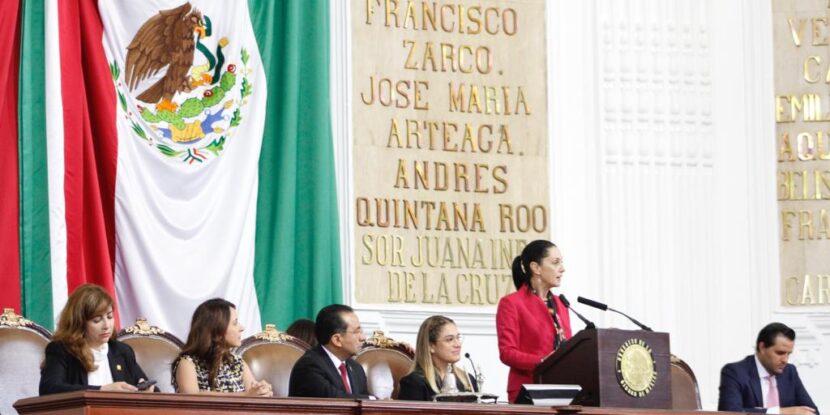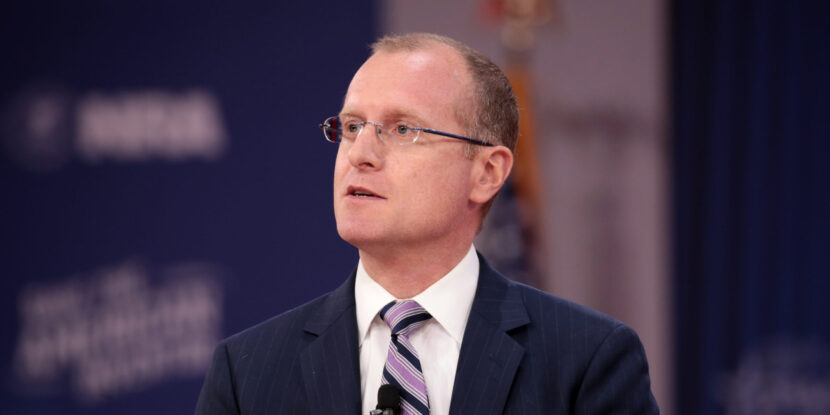
PULSE POINTS:
❓What Happened: House Republicans proposed a five percent tax on remittances sent out of the U.S. by non-U.S. citizens, sparking opposition from Mexico. In response, Mexican government officials are lobbying House Republicans in the U.S. to drop the provision from President Donald J. Trump’s budget bill.
👥 Who’s Involved: U.S. House Republicans, Mexican Ambassador Esteban Moctezuma Barragán, Mexican President Claudia Sheinbaum, and President Trump.
Your free, daily feed from The National Pulse.
📍 Where & When: U.S., ongoing discussions as of May 2025.
💬 Key Quote: “Imposing a tax on these transfers would disproportionately affect those with the least, without accounting for their ability to pay,” Barragán wrote in a letter to U.S. Congressional leaders.
⚠️ Impact: The proposal could generate $1 billion in tax revenue by 2026, but faces resistance from Mexican government officials, as remittances from the United States comprise a significant portion of the country’s revenue.
IN FULL:
The foreign remittance tax provision in President Donald J. Trump‘s budget plan, currently working its way through the House of Representatives, has become the target of a lobbying campaign by the Mexican government, which seeks to remove it from the legislation. Under the plan being pushed by President Trump and his allies in Congress, cash remittances sent by non-U.S. citizens to family members abroad would be subject to a five percent tax.
In a letter to House Ways and Means Committee leaders, Reps. Jason Smith (R-MO) and Richard Neal (D-MA), Mexico’s Ambassador to the U.S., Esteban Moctezuma Barragán, urged the U.S. lawmakers to reconsider the tax measure. “Imposing a tax on these transfers would disproportionately affect those with the least, without accounting for their ability to pay,” Barragán wrote, claiming the provision will have unintended consequences such as increased use of unregulated financial channels.
Mexico is the third-largest recipient of remittances among nations worldwide. In 2024, the country received an estimated $64.745 billion in remittances, with most of the money sourced through transfers from the United States. The country’s heavy reliance on payment transfers from the U.S. as a source of revenue has even prompted Mexican President Claudia Sheinbaum to weigh in on the issue, declaring it “arbitrary and unjust” and calling it “a measure that is unacceptable.”
The Joint Committee on Taxation released estimates that the tax could generate $1 billion in revenue by 2026, rising to $3 billion by 2034. During his first term in office, President Trump pushed for a remittance tax to recoup costs for his border wall with Mexico.
As part of the Mexican government’s push against the tax provision, Barragán has met with U.S. lawmakers, including Reps. Tony Gonzales (R-TX) and Maria Salazar (R-FL). Salazar stated she is still evaluating the proposal.

PULSE POINTS:
❓What Happened: The Federal Communications Commission (FCC) will allow Verizon’s purchase of Frontier, a regional telecom company, to move forward, with the former agreeing to enact a series of reforms in alignment with President Donald J. Trump’s pro-worker, America First agenda.
👥 Who’s Involved: Verizon, Frontier, the FCC, FCC Chairman Brendan Carr, tower climbers, and telecom workers.
Your free, daily feed from The National Pulse.
📍 Where & When: Washington, D.C., on Friday, May 16, 2025.
💬 Key Quote: “The agreement between NATE, Verizon, and the FCC is massive news. As a 36-year tower contractor and employer of over 200 tower technicians, this brings fairness back to our relationship. We can’t thank Chairman Carr enough for looking out for Main Street while still being fair to Wall Street. We hope T-Mobile and AT&T will follow Verizon’s lead,” said Craig Snyder, a tower climber and one of the negotiators for his industry in the Verizon acquisition deal, in comments to The National Pulse.
⚠️ Impact: Verizon’s acquisition approval comes with a commitment to ending its diversity, equity, and inclusion (DEI) policies and programs and agreeing to a new set of pro-worker conditions with the tower climber and telecom worker industries.
IN FULL:
The Federal Communications Commission (FCC) is allowing telecom giant Verizon to acquire Frontier, a regional communications company, with the aim of expanding its fiber Internet service. Notably, Verizon’s acquisition was contingent on a series of policy and labor practice changes, in alignment with President Donald J. Trump’s pro-worker America First agenda, imposed by the FCC through its regulatory authority.
“By approving this deal, the FCC ensures that Americans will benefit from a series of good and common-sense wins. The transaction will unleash billions of dollars in new infrastructure builds in communities across the country—including rural America,” FCC Chairman Brendan Carr said in a statement announcing the acquisition approval. “This investment will accelerate the transition away from old, copper line networks to modern, high-speed ones. And it delivers for America’s tower and telecom crews who do the hard, often gritty work needed to build high-speed networks.”
One of the biggest concessions being made by Verizon is the company’s decision to end its diversity, equity, and inclusion (DEI) policies and programs. In a letter to Chairman Carr on May 15, the telecom company acknowledged that it “recognizes some DEI policies and practices could be associated with discrimination.” Verizon goes on to announce that it “is changing its HR structure and will no longer have a team or any individual roles focused on DEI.” The move comes after Chairman Carr informed a number of telecom and Internet technology companies that the FCC would halt license approvals and authorizations for those that maintain discriminatory DEI programs.
The FCC also highlights that the deal represents a win for American workers. Verizon, as part of the approval, is committing to rework its agreements with NATE, the Communications Infrastructure Contractors Association, and remove the costly burdens its policies have placed on tower climbers. These new provisions include taking into account considerations in pricing when it comes to site conditions, the adoption of regional pricing for tower climbers and telecom workers’ labor, 30-day payment terms with fair indemnity clauses, and limits on Verizon’s use of 1099 outside contractors, which have been used to undercut worker wages.
Craig Snyder, a tower climber and negotiator for his industry in the Verizon acquisition deal, told The National Pulse: “The agreement between NATE, Verizon, and the FCC is massive news. As a 36-year tower contractor and employer of over 200 tower technicians, this brings fairness back to our relationship. We can’t thank Chairman Carr enough for looking out for Main Street while still being fair to Wall Street. We hope T-Mobile and AT&T will follow Verizon’s lead.”
show less

 1 month ago
1
1 month ago
1








 English (US) ·
English (US) ·